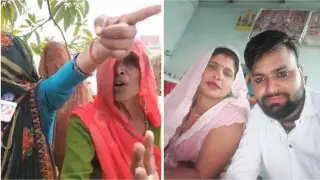
ANI
On the Supreme Court's observation that a Muslim woman can seek maintenance from her husband under Section 125 of the CrPC, Mohd Sulaiman, the founding member of the All India Muslim Personal Law Board (AIMPLB) said that the Supreme Court's judgement in the Shah Bano case in 1985 has led to a new law to come to existence. However, the interpretation of that law is carried out by the higher judiciary.
Mohd Sulaiman said that the Supreme Court stated that those seeking relief under Section 125 would receive it, and the Muslim community is not exempt from this provision. The judiciary believes that religious guarantees alone are insufficient for women's protection, and this mindset also influences their decisions.
#WATCH | On Supreme Court's observation that Muslim woman can seek maintenance from husband u/s 125 of CrPC, founder member of All Indian Muslim Personal Law Board, Mohd. Sulaiman says, "On the judgement of the Supreme Court on the Shah Bano case in 1985, the board held a moment… pic.twitter.com/y1MQAAhCfh
— ANI (@ANI) July 10, 2024
Mohd Sulaiman, further said that the marriage will not end as per Sharia law if a person go by the Supreme Court. “On the recent judgement, I have to say that for those sisters who want a decision regarding divorce under Islamic, Shariat rules, it will be better for them. Those who think that they can get maintenance through court can go there, but there is one issue, even after separation, divorce doesn't happen, and the woman can't marry. Hence it's an unnatural approach..,” he added.
It is important to note that the statement from the member of the All India Muslim Personal Law Board has come after the Supreme Court on Wednesday said that a divorced Muslim woman can ask for maintenance from her husband. The top court declared that Section 125 of the Criminal Procedure Code applies to all married women irrespective of their religion, which means that Muslim women also have the right to seek maintenance from their husbands after divorce under this provision.
The decision was announced by Justices BV Nagarathna and Augustine George Masih, who gave separate but concurring judgments.













Copyright © 2025 Top Indian News
